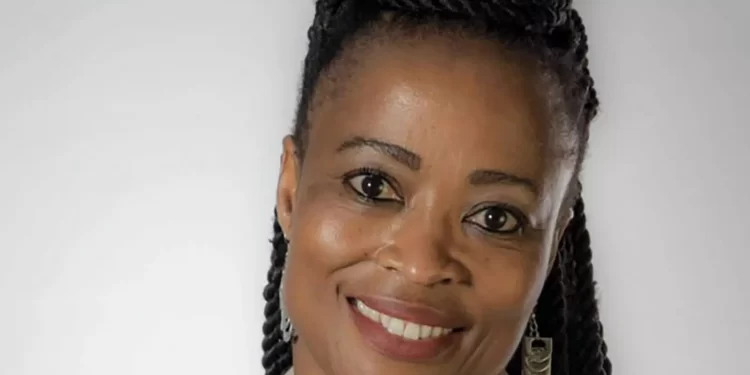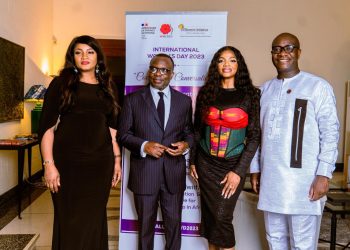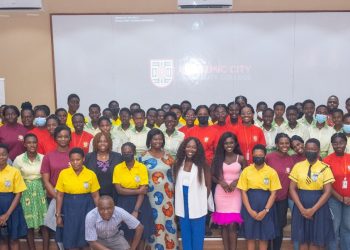The good news story of Africa’s economic development over the past decades has been called into question by recent events, which threaten to undo much of the gains.
According to the UN’s Food and Agricultural Organisation, decades of work to reduce hunger in Africa are being reversed as the continent struggles to cope with conflict, climate crisis and the global economic slowdown.
About 278 million people in Africa – approximately one-fifth of the total population – went hungry in 2021, an increase of 50 million people since 2019, according to UN figures. Based on current trends, this is projected to rise to 310 million by 2030.
Yet the continent has vast economic potential, with a wealth of natural resources, a youthful population and rapid urbanisation, among other assets.
The gap between the potential and the reality can be attributed to many historical factors, one of them the failure to fully develop Africa’s human capital, specifically women.
According to International Labour Organisation data, aggregate female labour force participation rates have remained stubbornly low since the 1990s, stuck at about 60%, while for men the latest measure is 74%.
And, according to UN Women, globally women are less likely than men to have access to financial institutions or a bank account, bear a disproportionate responsibility for unpaid care and domestic work and face greater hurdles in starting their own business.
The benefits of including women in the economy are substantial.
UN Women says women’s economic empowerment boosts productivity, increases economic diversification and income equality in addition to other positive development outcomes. As an example, increasing the female employment rates in OECD countries to match that of Sweden could boost their GDP by over USD6 trillion. On the other hand, it is estimated that gender gaps cost these economies about 15 percent of GDP.
“Education, upskilling and re-skilling over the life course – especially to keep pace with rapid technological and digital transformations affecting jobs—are critical for women’s and girls’ health and wellbeing, as well as their income-generation opportunities and participation in the formal labour market. Increased educational attainment accounts for about 50 percent of the economic growth in OECD countries over the past 50 years,” UN Women says.
Creating opportunities for women to find employment or start their own sustainable businesses represents a huge opportunity to transform Africa’s economic fortunes, one that Coca-Cola Beverages Africa (CCBA) is working hard to unlock.
We understand that businesses can only thrive when the communities we serve thrive too. Investing in communities ensures business sustainability. Most of all, we are all Africans and are part of our communities.
This is why we have made economic inclusion one of the pillars of our Sustainability strategy.
We define economic inclusion as opening gainful economic opportunities to under-served communities by providing access to markets that boost income and yield decent and sustainable earnings, while leveraging the business and the industry.
We intend to embed economic inclusion across our value chain and make it part of how we do business the right way.
We have narrowed our focus, selecting the two high-impact anchors of entrepreneurship and employability, and created a clear, specific set of impact measures by which projects will be evaluated.
We aim to create inclusive growth opportunities for women, youth, and people with disabilities by defining a consistent way of implementing economic inclusion programmes across our markets and leveraging leading practice. At the same time, we will seek to harness the impact of our economic inclusion initiatives to solve business challenges.
An example of our focus on creating inclusive growth opportunities for women is our partnership in Ghana with Girls in Science and Technology (GIST). Through this partnership, CCBA subsidiary Voltic (GH) Ltd aims to reach women at different levels of education, providing them with the mentorship and coaching they need for a successful and impactful Science, Technology, Engineering and Mathematics (STEM) career, exposing them to opportunities in the STEM industry. Voltic supports GIST with internship opportunities to female STEM students who fit in the company’s operations. Voltic also partners with GIST to organise various empowerment campaign programmes for girls in both secondary and tertiary institutions in Ghana.
In South Africa, we have established a bursary fund at the University of Pretoria to support female students from previously disadvantaged backgrounds in their final year of engineering studies.
In Ethiopia, hundreds of women are ready to deliver high standards of professional service after receiving training in customer service excellence, communication skills and a service mindset through a partnership between Coca-Cola Beverages Africa in Ethiopia and the Tourism Training Institute. A total of 400 women and youth participants from different walks of life attended the “We Serve” training last year, which was aimed at helping them to take their customer service skills to the next level.
In Namibia, a total of 65 women in the hospitality industry sharpened their skills during three-day training sessions in Windhoek and Swakopmund, hosted by Coca-Cola Beverages Africa in Namibia. The training included customer service, food and beverage service techniques, mixology ideas and an introduction to Coca-Cola products.
More than 800 women food vendors have been equipped through a partnership in Tanzania with the Institute of Social Work. The women received business and entrepreneurship training, focusing on bookkeeping and capital growth and received customer benches to make their outlets more welcoming, as well as 15kg gas bottles. The economic inclusion campaign by Coca-Cola Beverages Africa in Tanzania is called Mwanamke Shujaa, or “A Brave Woman”.
Meanwhile, 50 women plastic waste collectors have completed training in health and safety standards, and received guidelines for collection and waste management, which in turn is expected to empower over 500 waste collectors in Mozambique.
In total last year we empowered more than 17,000 women with foundational business skills, coaching and support.
We will continue using our focus on creating a better shared future to grow and sustain small businesses and enhance livelihoods, resulting in increased economic value and business capability for women, communities and our business system.
Our efforts will remain focused on ensuring that women run successful enterprises and increasing their participation in the formal economy through programmes to prepare them for the world of work – all in partnership with like-minded stakeholders.
If the private sector, governments and civil society work together to remove the barriers to women’s full participation in the economy, it would set the continent on a path to accelerated growth and greater shared opportunity for all.















